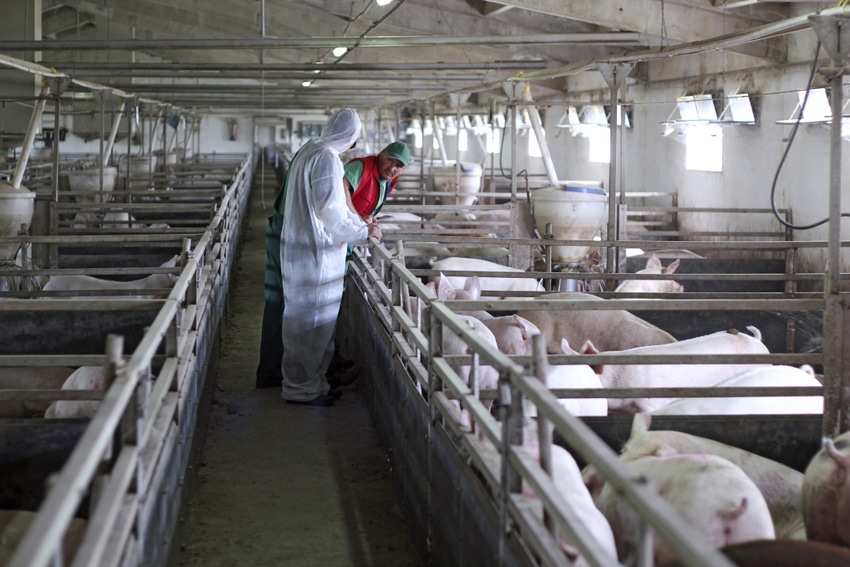Year-round pork production needs year-round labor
Recent legislative activity promising but more work needed to address significant labor shortage.
August 6, 2021

As anyone in the pork industry knows, there is no pork season. U.S. pork production is a full-time, year-round effort. It requires a hardworking and dedicated workforce on our farms and in processing plants. Unfortunately, we are suffering from a significant labor shortage that, if not addressed, will constrain pork production and lead to serious challenges in our food supply chain, including increased consumer prices and food insecurity.
Throughout the pork supply chain, we offer jobs with good pay and benefits, but most Americans do not live near our hog farms and harvest facilities, and rural populations continue to decline.
According to a study by Iowa State University economists that was recently updated to reflect the current state of the labor market, employment in the U.S. pork industry grew from 2001-2020 by an annual rate of 1.5%, four times faster than employment growth in all U.S. industries. Despite expanded wages and jobs, the U.S. pork industry is facing a significant domestic labor shortage due to the dwindling and aging rural labor population. From 2014-2019, the rural labor force shrank in five of the eight top pork-producing states, the study found.
As a result of this attrition, U.S. pork producers are increasingly dependent on foreign-born workers. According to the same study, foreign-born workers have been critical to the U.S. pork industry’s economic growth. “In many rural labor markets, immigrant workers have lessened the negative effect of net out-migration, helping to keep rural communities in these markets economically viable.” However, pork producers continue to struggle with ongoing labor shortages, and native-born workers and permanent residents cannot offset the need for foreign-born employees, the study found.
We’re proud of the diversity on our farms and across the pork production chain. For many foreign-born workers, a position in the U.S. pork industry has often created opportunity to come to the country and become an integral part of a community.
Unfortunately, current visa programs fail to address the workforce needs of U.S. pork produces and other year-round livestock farmers. This isn’t an isolated case just affecting the more than 2,000 pork producers in my state; this is an industry-wide shortage that needs to be quickly addressed.
Current visa programs designed for seasonal agriculture—such as the H-2A visa—fail to meet the workforce needs of U.S. pork producers and other year-round livestock farmers. To address the labor shortage, NPPC is advocating for year-round access to the H-2A visa program without a cap.
Earlier this year, the U.S. House of Representatives passed the Farm Workforce Modernization Act, by Reps. Zoe Lofgren, D-Calif., and Dan Newhouse, R-Wash. Among other provisions, the bill would amend the H-2A program to allow a capped number of visas for farmworkers to work year-round. The legislation is a good first step to jumpstart this critical conversation.
Last month, NPPC President Jen Sorenson testified before the Senate Judiciary Committee on the need for agriculture labor reform. She also highlighted why the Farm Workforce Modernization Act needs to be modified.
“While NPPC believes the bill is a step in the right direction, a cap will force different sectors of livestock agriculture to compete against one another for the same limited number of year-round visas. In that scenario, no one wins and, ultimately, the consumer will be punished with reduced pork supplies and higher prices at the store,” she said.
As debate on addressing agriculture labor reform moves to the U.S. Senate, we’ll be working with lawmakers to get this issue to the finish line. I want to thank Senate Judiciary Committee Chairman Dick Durbin, D-Ill., for his commitment to passing labor reform by working with NPPC and others in agriculture.
U.S. pork producers look forward to working with Sen. Durbin and others on labor reform that opens the H-2A program to year-round labor without a cap. This will help ensure we can continue to provide affordable, high-quality protein to consumers here at home and around the world.
Learn more here.
Source: Jennifer Tirey, Illinois Pork Producers Association, who are solely responsible for the information provided, and wholly own the information. Informa Business Media and all its subsidiaries are not responsible for any of the content contained in this information asset.
You May Also Like



